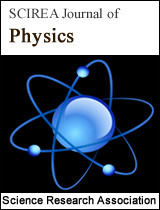Optimization of carrageenan extraction from Kappaphycus alvarezii red algae using microwave assisted extraction method with variation of solvent concentration
DOI: 10.54647/physics140518 141 Downloads 15630 Views
Author(s)
Abstract
Over time, new extraction methods have been developed, one of which is the Microwave Assisted Extraction (MAE) method. The mechanism of action of this method is to use microwave energy to heat the solvents that come into contact with the sample. The problem is whether carrageenan can be extracted from the red algae Kappaphycus alvarezii using the MAE method. For that reason, this research has been carried out with the aim of determining the optimum conditions of carrageenan extraction with the MAE method. The highest carrageenan yield was obtained by extracting with a 3% KOH solution with a ratio of ingredients and solvents of 1:20 and the extraction time of 30 minutes using a 30% power of 68.92%. Chemical identification results indicate carrageenan characterized by formation of fibrous precipitate after addition of 1% methyl blue solution and FT-IR spectrophotometry results indicate that the type of carrageenan obtained is kappa type which is characterized by the similarity of sulfate ester groups identified at wave number 1230- 1265 cm-1; C-O-C (glycosidic bond) at wave number 1033-1010 cm-1; C-O (3,6 anhydrogalactose) at wave number 925 cm-1, C-O-SO3 (D-galactose-4-sulfate) at wave number 844.82 cm-1 with the main functional groups in the carrageenan kappa standard.
Keywords
Carrageenan, Microwave Assisted Extraction, MAE, Kappaphycus alvarezii
Cite this paper
Syaharuddin Kasim, Subehan, Gemini Alam, Yusnita Rifai, Ismail, Sarce, Rifka Nurul Utami,
Optimization of carrageenan extraction from Kappaphycus alvarezii red algae using microwave assisted extraction method with variation of solvent concentration
, SCIREA Journal of Physics.
Volume 8, Issue 2, April 2023 | PP. 115-128.
10.54647/physics140518
References
| [ 1 ] | Ghufran M.K 2011 Tips for Successful Seaweed Cultivation in the Sea and Ponds. Andi Offset Printing |
| [ 2 ] | Anggadireja J.T, Zatnika A, Purwoto H and Istini S 2009 Seaweed. Self-Help Spreader. Jakarta |
| [ 3 ] | Anggadiredja J.T, Zatnika A, Purwoto H and Istini S 2006 Seaweed. Cultivation, Processing, and Marketing of Potential Fishery Commodities, Jakarta: Self-Help Spreaders, 147 |
| [ 4 ] | Ramalingam J.R, Kaliaperumal N and Kalimuthu S 2003 Commercial Scale Production Of Carrageenan From Red Algae. India. Regional Centre Of Central Marine Fisheries Research Institute Marine Fisheries – 623520 |
| [ 5 ] | Hoffman R.A, Gidley D, Cooke D and Frith W.J 1995 Effect of isolation procedures on the molecular composition and physical properties of Eucheuma cottonii carrageenan, Food Hydrocoloids 9:281-289 |
| [ 6 ] | Syaharuddin 2019 Optimization of extraction and quality assessment based on physicochemical properties of carrageenan from red algae (Kappaphycus alvarezii) origin of South Sulawesi Indonesia. J. Phys. Conf. Ser. 1341 072013 |
| [ 7 ] | Food And Agriculture Organization (FAO) Of The United Nations 2015 Social And Economic Dimensions Of Carrageenan Seaweed Farming. Rome. E-ISBN 978-92-5-107747-4 |
| [ 8 ] | Abdul, H.P, Khalil S, Lai T.K, Tye Y.Y, Rizal S, Chong E.W, Yap S.W, Hamzah A.A, Nurul Fazita N.M.R, Paridah M.T 2018 A Review Of Seaweed Hydrocollids: Properties And Application. eXPRESS. Polymer Letters 12(4), 296-317 |
| [ 9 ] | Vazquez D.E, Robledo D, Freile P.Y 2014 Microwave-Assisted Extraction of the Carragenan from Hypnea musciformis (Cystoclonisceae, Rhodophyta). Marine Departement, CINVESTAV. Mexico. J Appl Phycol. 26 901-907 |
| [ 10 ] | Velde V.D, Lourenco N.D, Pinheiro H.M, Bakkerd M 2002 Carrageenan: a food grade and biocompatible support for immobilization techniques. Advanced Synthesis and Catalysis 344, 815-835 |
| [ 11 ] | Pelegrin F.Y, Robledo D 2006 Carrageenan of Eucheuma isiforme (Solieriaceae, Rhodophyta) from Nicaragua. Yucatan, Mexico.II. Seasonal variations in carrageenan and biochemical characteristics. Bot Mar 49:72-78. |
| [ 12 ] | Ega L, Cynthia, Cristina G.L. and Firat M 2016 Study of the Quality of Eucheuma cottonii Seaweed Carrageenan Based on Physico-Chemical Properties at Different Levels of Potassium Hydroxide (KOH) Concentrations. Agricultural Product Technology study program, Faculty of Agriculture, Pattimura University. Indonesian |
| [ 13 ] | Distantina S, Rochmadi, Wiratni and Fahrurrozi M 2012 Process Mechanism of Carrageenan Extraction Stage from Eucheuma cottonii Using Alkaline Solvents. Journal of Agritech. 32 (4) 397-402 |
| [ 14 ] | Supriyantini E, Gunawan W, Santoso, A.D 2017 Quality of Carrageenan Extract from Kappaphycus alvarezii Seaweed Cultivated in Kartini Coastal Waters and Kemojan Karimunjawa Island, Jepara Regency. Department of Marine Science, Faculty of Fisheries and Marine Sciences, Diponegoro University. Semarang. |
| [ 15 ] | Oviantari M.V and Parwata I.P 2007 Optimization of Semi-Refined Carrageenan Production from Seaweed With Variations of Eucheuma Cottonii Drying Techniques and Moisture Content of Raw Materials. Journal of Science Research and Development & Humanities 1(1) 62-71 |
| [ 16 ] | Stanley N 1987 Production, properties and uses of carragenan. Dalam: McHough DJ, editor. Production and Utilization of Product from Commercial Seaweed. FAO Fish Tech Paper. 288 116-146 |
| [ 17 ] | Imeson A 2000 Carrageenan. In Philips Go and Williams PA, editor. England. Handbook Of Hydrocolloid. Wood Head Publishing. Seconf edition |
| [ 18 ] | Wenno MR, Thenu J.L, Lopulalan C.G 2012 Kappa Karaginan Characteristics of Kappaphycus alvarezii at various Harvest Ages. JPB Fisheries. 7 (1) 61-67 |
| [ 19 ] | Anwar F, Djunaedi A, Gunawan W.S 2013 Effect of Different KOH Concentrations On The Quality Of Sargassum Brown Seaweed Alginate Duplicatum J. G. Agardh. Journal Of Marine Research. 2 (1) 7-14 |
| [ 20 ] | Syaharuddin, Asnah M, Sumarheni S, Yayu M.E 2018 Isolation and Identification of Bacillus alcalophylus from Kappaphycus alvarezii and Their Antibacterial Activity Against Human Pathogens, Asian Journal of Microbiology, Biotechnology & Enviromental Sciences Paper. 20 (1) 94-99. |

